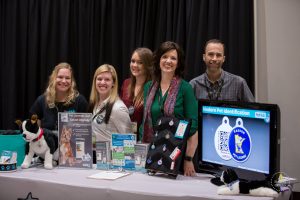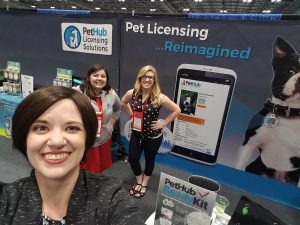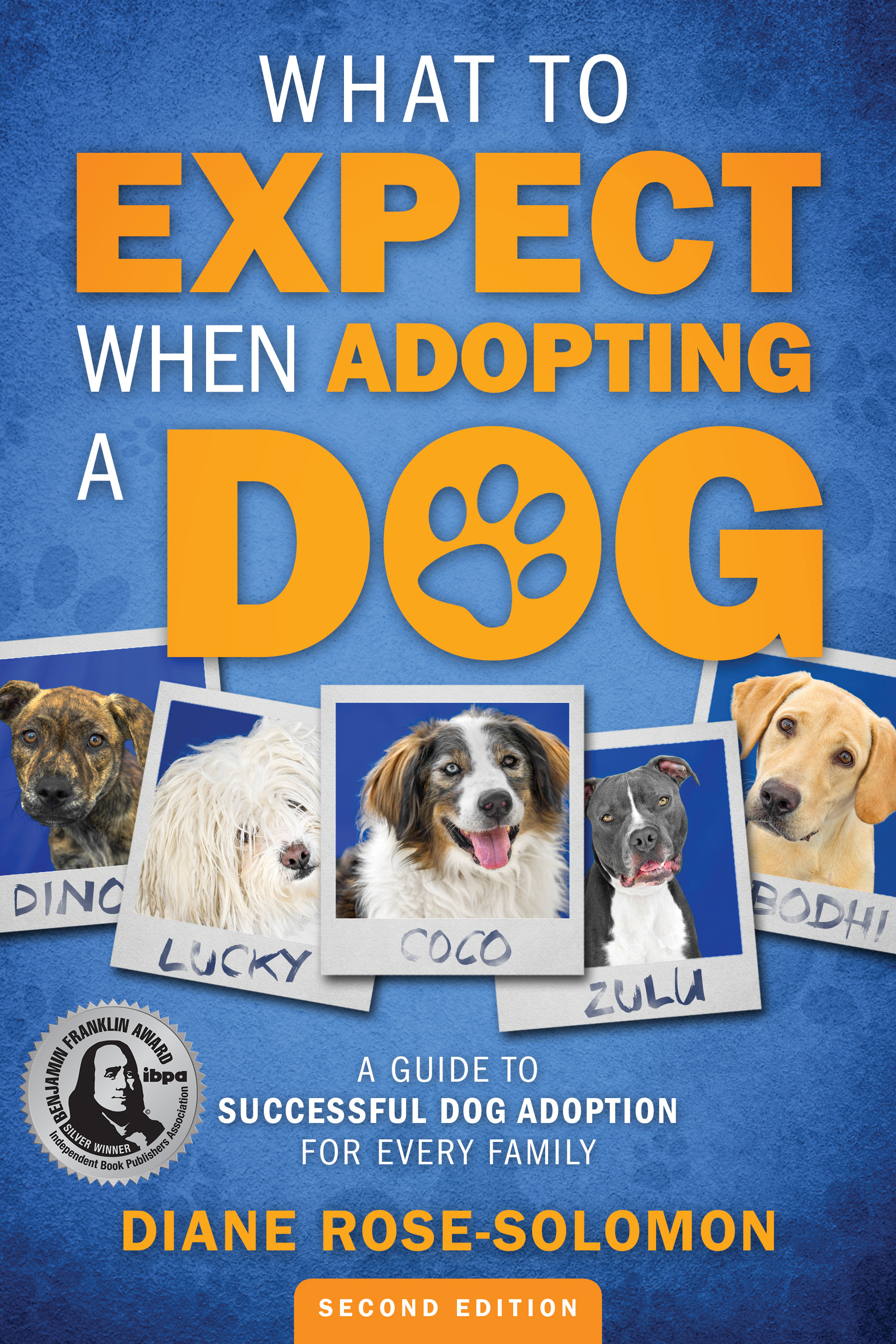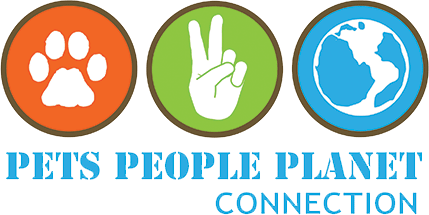As the blog title says, PetHub does more than get your pets home fast. That’s a big deal as it is. But they do so much more!
What is PetHub?
Whether you’ve heard of PetHub or not, take a moment or two to peruse this interview with Lorien Clemens, VP of Marketing and Operations. There’s not only great information about PetHub products which could potentially save your pet’s life, but Lorien shares wonderful stories and lessons that we can all learn from.
products which could potentially save your pet’s life, but Lorien shares wonderful stories and lessons that we can all learn from.
Diane Rose-Solomon: Lorien, I’ve known you for a few years and I know some of your story, but not all of it. Would you share how you got started in your pet business?
Lorien Clemens: PetHub [Modern Pet ID Tags], actually began in February 2010. It was founded by my significant other who was previously at Microsoft. He left Microsoft to start PetHub. Back then I was working for a private Montessori school and was looking to leave. He was bringing stuff home that he and this team he had formed with a group of students at the University of Washington were creating and getting my feedback. I found myself just doing a lot of work for this new project that he was doing to help pets. So, after a couple months of it taking up my living room and every one of my evenings I jokingly said to him “well maybe I should leave education and go into the pet industry and you could actually pay me for this work that I’m doing for you.” And there was a quick conversation of “oh my God that would be terrible to bring working together into our relationship, let’s not even go there.” But I still kept doing more and more work. So I decided I needed to leave education just because it was time for me to move on and I started looking for what else I would do. At that point Tom said “Hey, would you like to come work with us?”, and he actually mailed me an official offer letter. So that’s when I started working at PetHub and it was really exciting. I had been part of PetHub since it started, I had never been part of a startup company before. I’ve had many careers, I’ve been in theater, education, design and several other offshoots. But for the first time I really got to bring in all of my skills and help animals, which I’m obsessed with. It has been the single most fulfilling thing I’ve ever done.
DRS: That’s so cool, Lorien. How does your business help both animals and people?
LC: In a nutshell we help pet parents prepare for the worst. And the “worst” being your pet goes missing. We are set up so that a pet parent can come in and set up a pet profile for their fur kid, or not even fur we even have reptiles and birds.
DRS: Oh really?
LC: Yeah, we’ve actually gotten a Sulcata tortoise home, but that’s another story. Our clients are able to enter a ton of critical information that could help their pet in a time of crisis. Generally speaking that time of crisis that we’re able to help with is in a lost pet situation. So if your pet ends up in a shelter over night, you can actually enter items like medications, conditions, vaccinations, allergies, diet into their profile so that the shelter would be able to help them get the care that they need should they have to spend the night. If they, unfortunately, get hit by a car or something and they have to go to a veterinarian, the veterinarian would be able to know: “this animal has epilepsy and has to have phenobarbital twice a day, etc. and is current on all their vaccinations” and all that information is right there and it allows for care to happen immediately. It also helps in other situations too which we’ve most recently seen in things like the hurricanes. We’ve had major hurricanes in the United States and people were able to use this free setup. Pet parents can take the time when they have a calm moment to set up their pets profile as soon as they get their Pethub tag. Then if there is a disaster, and “now have to evacuate and put my dog in a shelter and it’s a different shelter than the one I’m able to stay in but the identification that they have on their collar and the card that they have on their crate links to all of that information that I already put in”. It allows that critical information to help your pet in that time of crisis because it’s already there. And you can change it at any time you want. So in the example I just gave about an animal being in a different shelter from me which happened a ton, and then I’m consolidated to yet another shelter as they continue to get people out and back into their homes, I can still update that on my pet’s profile and the animal shelter automatically has access to that profile and knows that I’m at a different shelter. So for pet parents we give them that peace of mind that they’ve done everything they can to prepare for the worst.
 Now for pets, we get them home quickly. Over the last seven years that we’ve actually had our tags out there in the market, every year we come back with our statistics we find that 96% of PetHub covered pets are home within 24 hours or less. That’s huge. And of those pets that are getting home through the PetHub system, less than two percent are ever hitting a shelter door. And depending on where you live in this country, let’s face it, that could be a lifesaver. Certain breeds, if they end up in a shelter, that’s not good. We’re very proud of those statistics, they’ve held and they keep improving. So that’s what we do for pets, we get them reunited with their families quickly. Also we’ve got some pretty stylish tags, and they’re durable and reliable and all these other things too. That’s basically it, in a nutshell.
Now for pets, we get them home quickly. Over the last seven years that we’ve actually had our tags out there in the market, every year we come back with our statistics we find that 96% of PetHub covered pets are home within 24 hours or less. That’s huge. And of those pets that are getting home through the PetHub system, less than two percent are ever hitting a shelter door. And depending on where you live in this country, let’s face it, that could be a lifesaver. Certain breeds, if they end up in a shelter, that’s not good. We’re very proud of those statistics, they’ve held and they keep improving. So that’s what we do for pets, we get them reunited with their families quickly. Also we’ve got some pretty stylish tags, and they’re durable and reliable and all these other things too. That’s basically it, in a nutshell.
DRS: Yeah, your tags are awesome. I recently realized I still had an old tag from the rescue group on my dog’s collar; you couldn’t even read the tag anymore so I took it off. He had about 4 different tags until he got his PetHub tag.
LC: But you can read his PetHub tag right?
DRS: Absolutely!
LC: To your point about having all those tags on there, you can consolidate everything into your one PetHub tag. Since it links to this online profile you can go in and enter your microchip number, your rabies tag number, and your pet license. And our newest thing that we do now, and actually our primary business, is we work with municipalities to switch out from those stamp metal ID tags that are what most people know and wear off quickly into a PetHub ID tag. We now have over 45 municipal clients representing over 250 communities (cities, towns and villages) in 21 states that use PetHub tags as their pet license! You are now able to reduce the number of tags you have on your poor dog so they can just have that single tag that links to all the information that you need.
DRS: That’s so cool. How familiar are veterinarians with the PetHub tag?
LC: It’s growing. In the communities that we are in, I’ll use Miami-Dade as an example, the veterinarians are actually the ones that hand out the tags. We do training sessions with the veterinarians, we show them what the system is and they’re so excited about it. They’re actually looking at this as a health and care benefit to the animal. It’s not just a license. But we get calls all the time from veterinarians, groomers, pet sitters, from all kinds of pet care providers that say “I just saw one of your tags for the first time, it’s so cool, tell me more”. As we continue to grow and expand our base of municipal licensing programs more and more people are understanding. And that’s exciting. The San Diego area is slowly doing a rollout of all of our tags. I think right now about six of maybe a dozen municipalities in San Diego have PetHub tags and the rest are scheduled for the near future. The more an entire community starts to use our tags as the main license and identification, the more people are able to facilitate pets quickly getting home because they immediately understand the system. Like anything new there’s a learning curve and now we actually have several veterinarians and pet stores that are recognizing the PetHub ID and understand immediately. And they’ll even call us, this is funny, and say ‘hey I got a lost pet in, they don’t have any tags on them at all but I thought maybe they’d be in your system’ which is awesome but we’re like, yeah we don’t have a way to look them up. But they know that PetHub is servicing that community and so they’re coming to us first with lost pets which is pretty cool.
DRS: So the answer is, tell those owners to get a PetHub tag. 
LC: Or, you know, a lot of times it’s because the pet doesn’t have a collar on, you know you wash your dog or whatever you take the collar off. If I was to say one thing to pet parents it’s ‘get that collar on that dog, even if they’re still wet’.
DRS: Yeah, I know somebody locally who doesn’t keep a collar on her dog and it drives me bananas. This is all so interesting, Lorien. Now I’d love to know about your relationship with animal rescue.
LC: Well, professionally PetHub works with a lot of different rescues. We provide tags for all nonprofits at our cost. We also make tag donations for events and things like that. And for me personally, three of our four animals are rescues from three different places. Within my extended family, my mom and dad my brother, my sisters all of them were big proponents of adoption and I have a Boston Terrier that I was able to adopt from a puppy mill raid. That’s not what they called it at the time, they said it was a hoarding case but I know now that it was more likely a puppy mill situation. At PetHub HQ we are huge supporters of Wenatchee Valley Humane Society and they have been huge supporters of ours. They allow us to make them our guinea pigs when we’re trying out different things because they want to be supportive of us as a business. So we’ll ask ‘hey guys we have an idea, a crazy idea, can we try it with you guys?’ And they actually serve, I think, seven or eight different cities within our region. They’re fantastic.
 DRS: I love that. One of the groups that I’m connected with in LA is called Shelter Transport And Rescue Team and they pull dogs out of LA shelters and they put them on this giant bus called ‘The Beast’ that they’ve outfitted for animal transport to the Pacific Northwest because there are way fewer dogs up there than there are down here.
DRS: I love that. One of the groups that I’m connected with in LA is called Shelter Transport And Rescue Team and they pull dogs out of LA shelters and they put them on this giant bus called ‘The Beast’ that they’ve outfitted for animal transport to the Pacific Northwest because there are way fewer dogs up there than there are down here.
LC: Yeah, especially small dogs. We have a big desire for small dogs up here. I know that we got a ton of dogs from Texas after the hurricane. And I know that we’ve gotten dogs from as far away as Georgia and Florida where there was a massive extraction of death row doggies. At any given time it always seems like there’s always dogs over there at the Humane Society but they don’t seem to stay that long. Unfortunately except for the pitbulls. Whenever I see posts that this is day 89 for Lucas or whoever it is, it’s always those pitbull doggies and it’s upsetting. In our family, we’ve already had the discussion ‘okay, when we have space…’ (which we hope we don’t have space anytime soon – we have our 4 pets already that we love dearly) we want to go out and rescue one of those pitties because they’re such amazing dogs.’ We couldn’t bring them into the house right now just because we are full.
DRS: I totally get that. We have a pittie mix and he’s awesome. I’d rescue them all if I could. Do you have a favorite pet or animal story?
LC: When I was still in college, like 1990 or so, I was doing an outdoor theater Shakespeare in the Park in Oklahoma. After the show, we saw this white something up the hill and it was moving. We went up there and it was a white cat who had been tied to a tree and left there after the performance. So, of course, being a bunch of college theater kids we untied the cat and put him inside and we gave him a bowl of popcorn and some water because that’s what we had available to us. The next day we came back and he was asleep on some costumes. He hung out with us for the rest of the summer. Then at the end of the summer the theater director, who was really cool, said, “somebody has got to take this cat home”. We had put up signs and lost pet ad in the paper and nobody came to claim him. This was before the days of microchips. We ended up drawing straws cause three of us that wanted this cat. And I got the straw so I got to take Bardolph home. We named him Bardolph because we were doing Henry the IV part one and two that summer and Bardolph was a character there. And Bardolph had fallen asleep on the statue of Julius Caesar, which was, I guess, cool to the touch for him, and he got a sunburn on his nose. It got red and bulby and Bardolph in the play has a red and bulbous nose so that became his name. Anyway, that cat had been through the ringer. He wouldn’t take his claws in. He was always in a defensive posture. I had him for 19 years and he tested positive for Feline Leukemia but never actually showed any symptoms and he eventually got diabetes but he was a stud about taking the insulin. Both he and my current dog Penny, who was an abused dog, and who has also been through the ringer and is not gonna leave a beautiful corpse because she has so many scars, have taught me so much about enduring whatever comes your way. Neither one of them ever gave up. They were both cranky animals and maybe that says something about me although all my other animals have been delightful, but they both have taught me a lot about not giving up and not letting setbacks keep you from living your fullest life. Penny, literally, has so many scars, she’s broken bones, she’s dislocated things, she’s got one eye and yet she goes full head-on into everything she attacks and it’s more about that enduring no matter what.
DRS: That’s so beautiful. Thank you for sharing. Can you offer three professional tips to my readers?
LC: Realize that pet identification, when it works, needs to be comprehensive. In the industry we say it’s a three-legged stool and if any of the legs are missing then you have got a problem. These are the three legs:
1) So you’ve got microchipping; it is the ultimate safety net but a lot of people, when they microchip their pet, then they have a false sense of security: “my pet’s microchipped and I never need to worry about it again” and you and I have both heard those stories where a cat gets home after 7 years because of a microchip. That’s like a tragedy for both families. Microchipping is key and you need to keep it up to date. I would recommend with that microchipping that you not only register it with the microchip company but also a microchip registry like foundanimals.org or found.org which are free registries and they make it a lot easier to update than a microchip company.
2) License your pet. A lot of people say “oh it’s a tax on my pet, I shouldn’t have to pay a tax”, the bottom line is if your pet gets lost or if there’s an outbreak of something in your community you, personally, and your pet are going to need the services of your local animal care and control. Pet licensing helps fund that. So a lot of people are like “oh my pet will never need that” until your pet gets lost and gets picked up by animal care and control and then you’re really lucky that they had a place to spend the night and not get eaten by the coyotes. So, license your pet. It’s also a public health thing so that we understand that all of our animals are properly vaccinated. I don’t want to read any more stories about a child getting bitten by a potentially rabid dog because the pet parents didn’t think that the dog really needed the vaccination. It’s a deadly thing.
3) And the third is to have external identification on your pet at all times. Including cats. It’s critical. The number one way animals get home is through external identification; a tag. 90% of the pets that get home are getting home because of external identification. That doesn’t mean that 90% of pets are getting home but it means that the ones that are getting home are getting home because of external identification. If the identification is not readable and not current, it’s not going to help. So that’s three pieces right there.
DRS: What is next for the PetHub business and what can we be looking for?
LC: We’re going to be adding more and more municipalities onto our pet licensing program so hopefully there’s pet licensing coming soon to your hometown. If you don’t have PetHub licensing in your community at this point and you want to help us move that forward feel free to drop us a note. You could just send it to support@pethub.com. Particularly if you know someone in animal care and control in your community, that can often help with the conversation. And the other really cool thing that’s happening, we’re launching a big website update right now. I’m so excited- it’s gorgeous. We’re totally readapting the UI, which is the user interface, so it’s gonna be even easier to keep track of all your pets’ information. And then finally we are launching some exciting strategic partnerships. We already have a great partnership with Petplan. You can get discounted pet insurance through PetHub. But we have a couple others that are getting launched that are equally exciting that are new, out of the box ways of thinking about pet care. A couple of examples are keeping your veterinarian records safe and sound and ways treating anxiety through modern technology. With some of those partnerships preventing and treating anxiety is a key part of lost pet prevention because one of the main reasons that a lot of pets go missing is because they get startled or scared. These strategic partnerships are going to bring more great resources to pet parents. We named ourselves “PetHub” because that was our ultimate vision. Bring all those things for your pet into one hub and then work from that place.
DRS: This is all so brilliant. And the best place to get more information is at Pethub.com.
LC: Yes, exactly.
DRS: Great. Anything else you would like the people to know about you or your business?
LC: Well, I’ll tell ya, there’s another resource that’s sponsored and run by the PetHub team but it’s slightly different – it’s called PetLoverGeek.com. It’s a radio show through Voice America along with blog posts. It’s a great resource for pet parents to see the latest in pet technology. We also work hard to debunk some of the marketing BS that’s out there. You know when you read like “New and improved, technology-driven”… what does it really mean? A lot of times it’s just a bunch of empty buzzwords so we try to help people see what is new and out there and what actually seems to be working and of value. That’s another cool resource that PetHub provides that you wouldn’t know that PetHub provides it because it’s mostly behind the scenes.
 DRS: Thank you, Lorien for sharing Pethub, your exciting plans, and your wonderful stories. You, Tom and everyone at Pethub make a difference to the lives of people and animals in so many ways.
DRS: Thank you, Lorien for sharing Pethub, your exciting plans, and your wonderful stories. You, Tom and everyone at Pethub make a difference to the lives of people and animals in so many ways.
And thank you, Lorien for your contribution to What to Expect When Adopting a Dog.


One comment
That is so very cool. Bravo PetHub!
Comments are closed.